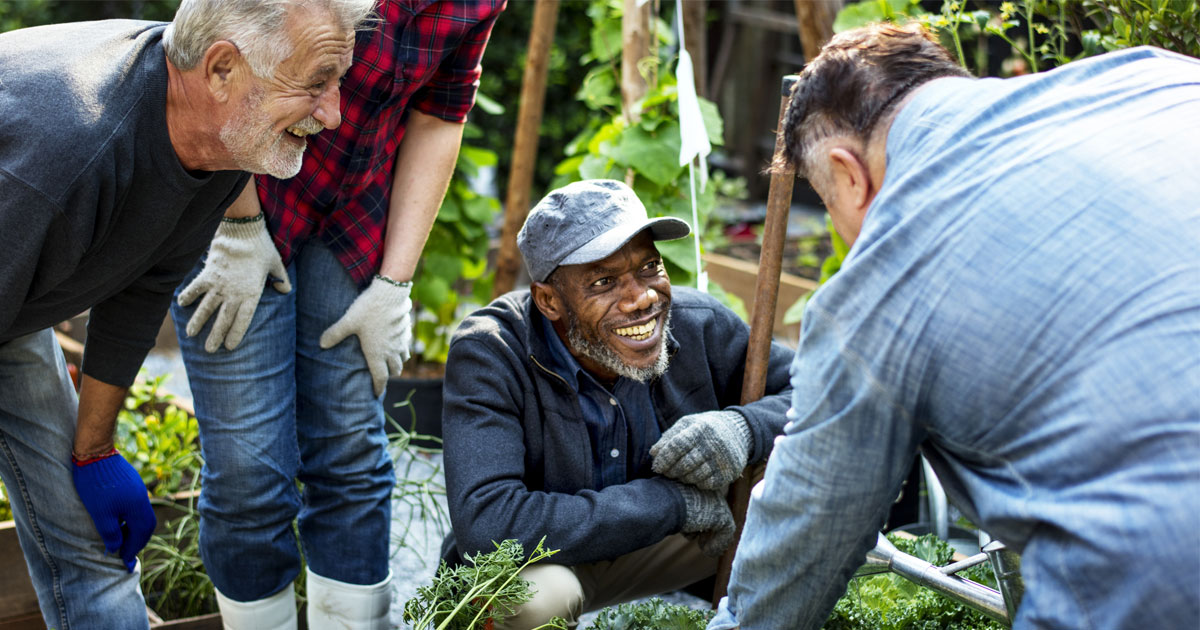Addiction aftercare is incredibly important for people in recovery to continue to lead a healthy and successful life. Reentering your daily life and leaving the structure of a rehab program is what many people refer to as the real challenge of sobriety. With a relapse rate of up to 60%, substance use disorder is a chronic condition that you will continue to face for the rest of your life. However, if you’ve developed a healthier approach to managing life and continue to seek support after treatment ends, your chances of success are much higher.
Completing rehab can be difficult enough all on its own. Between navigating triggers and mental health concerns, developing coping skills, participating in counseling and therapy, and continuing recovery, you have a great deal of work to do. However, once the program is over, you will have to reenter life and continue your sobriety in the rest of the world. Managing your triggers, rejoining society, and living a successful life can be tough, even for those who successfully completed rehab.
Aftercare and Addiction Recovery
So, what is aftercare, and why is it critical for addiction recovery? When you initially enter a recovery program, the first step is typically to detox from any substances that may be in your system, restoring the body’s ability to function without the aid of substances. Until that happens, recovery cannot begin.
Once detox is over, you can then begin receiving the care you need to gain tools for a new and healthy life. This care can look different depending on the situation; inpatient services can offer residential care, while outpatient services give patients the freedom of movement they may need to be successful.
No matter what your treatment program was structured like, once you re-enter your life, it is essential to continue putting in work to maintain recovery. Aftercare is a term used for the resources you can access after exiting rehab. The goal of aftercare is to offer the much-needed support that people with substance use disorder require to stay in recovery.
Why Seek Addiction Aftercare?
When done well, aftercare programs can help prevent the occurrence of relapse by offering support to people when they need it most. Depending on the source, aftercare can include many different aspects, including a combination of activities, interventions, therapies, and resources to help support people as they re-enter life. Ideally, an aftercare program offers multiple options like relapse prevention, education, individual and group sessions, alumni programs, and more, so that each individual can access what they need.
Rather than feeling like you’re alone in the world, aftercare programs offer a hand and a safe place to continue receiving support. Like any other treatment plan, aftercare plans are often customized to the specific needs of the individual. They aim to help you address cravings, stress, and triggers, while also assisting with everyday needs such as employment and housing, among other things.
Addiction Aftercare Programs
Each aftercare program offers a different set of resources that are best suited to the clients they serve. Still, most aftercare programs contain a mix of resources, such as:
Sober Housing
Being surrounded by other people who are working through the same thing can help people make the transition to outside life easier. Others in sober housing have committed to abstaining from any substance use and thus create a sober environment and community.
Therapy
There are many people who need continuing therapy after rehabilitation. They discover new triggers that they need to work through, need to learn to deal with different stressors, and generally need guidance for their new life. Continuing therapy can offer that.
Support Groups
Similar to the community in sober housing, support groups give you access to others who are struggling through a similar situation. This community can offer a safe place to ask questions, ask for help, and provide support as you navigate recovery.
Group Therapy
Group therapy gives you a chance to make new connections with people in an environment that is controlled by an administrator. It allows all involved to work on social skills that they might not have used in a long time without the influence of a substance.
Mentorship
Having a sponsor or mentor can be a major lifeline for people in the early stages of recovery. Things get hard, and having a support group is wonderful, but having a mentor or sponsor who is willing to help you anytime can offer a safety net that some may not get anywhere else. Sponsors are a common component of 12-step recovery programs, but mentors can exist outside the bounds of a 12-step group.
Alumni Programs
Alumni programs keep a patient connected with the rehab center, and they also help people stay in contact with peers who have shared experiences. In addition to these benefits, you can also gain a wider resource network through alumni programs, and the more people who are in your corner during a difficult time, the better your chances for success. Support is everything in aftercare.
Continuing Mental Health and Medical Care
Sometimes, people need additional medical care or serious continued mental health care. Those continuing to face serious mental health issues can benefit greatly from the physical and mental health resources provided by aftercare. Because SUD and mental health are very frequently associated, staying physically and emotionally healthy during recovery is integral to aftercare.
Planning for Addiction Aftercare
The best aftercare plans are created with the individual in mind. Typically, aftercare plans are created with your input so you can keep your goals in mind, formulate strategies to accomplish these goals, and evaluate the expected outcomes of the plan. In this way, aftercare provides the framework for life after rehabilitation.
A therapist or specialist will meet with you to determine the resources you need within your aftercare plan. They should work with you to help you understand each option, assess where you are in your healing journey, identify any existing and potential triggers, and consider your concerns about transitioning into a new, less-structured environment. It’s also crucial that both you and your therapist monitor your progress during aftercare and make changes when necessary.
Support Systems: Essential to Addiction Aftercare
Having a reliable support system during aftercare is essential to your success. Surrounding yourself with family, friends, and peers who will help you rebuild relationships and social skills can help you put your best foot forward. Transitioning to life outside of a treatment program is often difficult, but a support system can help the process go more smoothly.
When you’re thinking about your support system, think about how people can provide emotional support when you need it most. While they might not be able to understand exactly what you’re going through, they can offer you support and compassion throughout these crucial times.
A text or phone call can help keep you on track, while other members of your support system may take you to meetings, attend with you, or help hold you accountable for your aftercare plan. Having people you can rely on to show support and help you celebrate meeting goals and accomplishing new things can help to give you a sense of pride in your recovery.
Addiction and Relapse Prevention
The number one goal of aftercare is to prevent you from returning to active substance use. That’s why aftercare strategies focus on reinforcing and strengthening the tools learned during rehab. Sticking with an aftercare plan can make you much less likely to relapse and increases the likelihood of a positive outcome. Conversely, skipping the aftercare program deprives you of a wider support system and takes away the additional resources that they have access to for their sobriety.
With long-term substance abuse, the brain and the way it works are changed measurably. Because the brain is altered along with the body, aftercare helps you manage these changes and reverse the negative behaviors that contribute to substance use. Rewiring the things learned during active substance use helps prevent relapse and gives you the skills you need to cope with stressors and triggers as they come. In addition, creating a relapse prevention plan can help you provide a framework for responding when triggers and life events do threaten to knock you off track.
Additional Aftercare Support
Preventing relapse is a critical component of aftercare, but there are plenty of other immediate needs you must address when you complete treatment for SUD.
Education and Employment
Many people struggle to find gainful employment due to troubles in their past with substance use. This can be very damaging, as it takes away some of the independence a person needs to reach long-term recovery. Aftercare programs may help you find a job that can ensure you are financially stable and self-sufficient after treatment. Whether you need to secure a new job or simply need education or training to advance your career, many aftercare programs offer education and employment resources.
Housing
Finding a living situation that fits can be difficult after leaving inpatient treatment. Not everyone will benefit from a sober living environment, especially those that need to be independent to feel successful. Aftercare programs may be able to help you find housing so that you can rejoin society again when you are ready.
Activities and Socialization
Many things can be lost through SUD, and many of them are gained back again once in recovery. Aftercare programs can help introduce you to new people, new hobbies, and even new passions. Staying active can help you manage stress and help you rediscover who you are in recovery.
Benefits of Addiction Aftercare
The most obvious benefit of aftercare is the reduction in relapse rates. This is the ultimate goal for aftercare programs, but there are other positive benefits that come along with utilizing aftercare programs, including:
Coping Strategies
While the basics of these strategies are learned during rehabilitation, concepts are expanded and solidified during aftercare. Coping strategies help people suffering from SUD navigate through stressful and triggering people and events. With aftercare, these strategies become second nature and get easier for people to use when they need them.
Ongoing Care
SUD is a chronic condition, and like other chronic conditions, it requires ongoing care as you navigate recovery every day. While aftercare cannot stop relapse altogether, ongoing care can help you address issues as they arise. This care can continue throughout recovery and for the rest of your life.
Support
It may not be possible for you to turn to family or friends for support, and because support is so vital to recovery, this can be detrimental to your own healing. Aftercare programs are designed to help you through this struggle and offer support where you need it most. For some, it can help them build the support system that they need to remain in recovery long-term.
Resources
You don’t need to go through recovery alone. Still, gaining access to services or groups can be difficult if you don’t know where to go for help. With an aftercare program, more resources for recovery are available to you, supplied by knowledgeable recovery-focused staff.
Independence
With the support of aftercare programs, you can gain access to your independence again. You’ll be able to solidify the skills you learned in treatment so you can apply them to your real-life situations. In addition, you can learn new skills so you can stay happy and healthy for many years.
Choose Lilac Recovery Center for Aftercare Services
At Lilac Recovery Center, we provide luxury services at a time when you are at your lowest or most vulnerable. Recovery is hard work, but our luxury accommodations and compassionate care mean you can focus on rebuilding your life. We offer individualized care so that you are getting exactly what you need via a unique, whole-person plan crafted just for you. Your care matters, and we will treat you with the dignity and respect that you deserve, offering a comfortable, judgment-free space.
We work to take the discomfort and stress out of recovery, both during treatment and after your time with us has reached its end. Our aftercare services can help you apply what you’ve learned during our program to the rest of your life so you can return to a happy, safe existence. Learn more about addiction recovery aftercare services, and let us help you maintain recovery in comfort today.
References :
- https://nida.nih.gov/publications/drugs-brains-behavior-science-addiction/treatment-recovery
- https://onlinelibrary.wiley.com/doi/abs/10.1046/j.1360-0443.2002.00101.x

CADC II, Certified AOD Counselor
Nora Jenkins has made the quality and committed care we provide at Lilac Recovery Center possible. Nora is experienced in providing care to assist in rebuilding relationships to support healthy, long-term recovery. Her professional background includes clinical management, program administration, and counseling.






